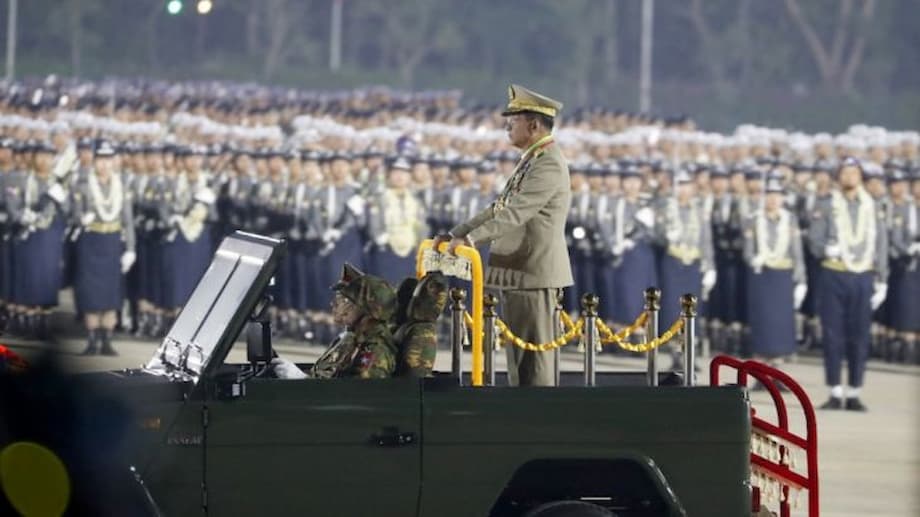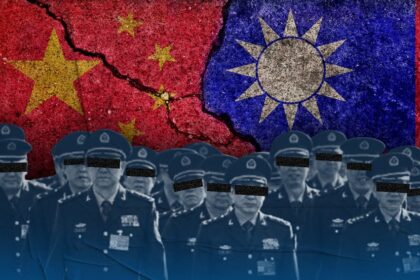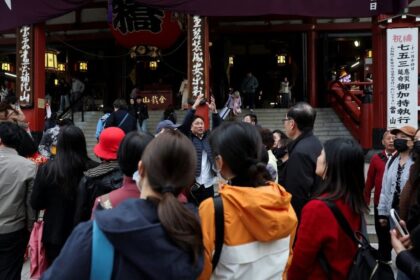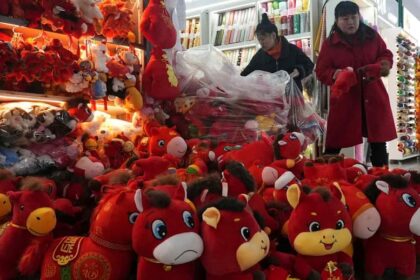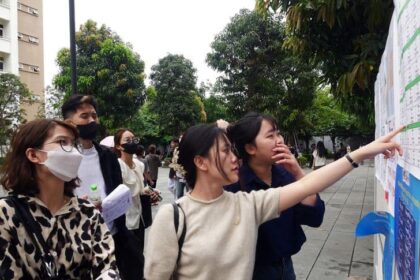Myanmar’s State of Emergency Ends: A Turning Point or Political Theater?
Myanmar’s military government has officially ended the nationwide state of emergency that has gripped the country since the 2021 coup. The move, announced on July 31, 2025, is being presented by the junta as a step toward restoring multiparty democracy through elections scheduled for December and January. However, opposition groups, international observers, and many citizens remain deeply skeptical, viewing the development as a calculated maneuver to entrench military rule under Senior General Min Aung Hlaing rather than a genuine transition to civilian governance.
- Myanmar’s State of Emergency Ends: A Turning Point or Political Theater?
- How Did Myanmar Get Here? The Road from Coup to Civil War
- What Does the End of the State of Emergency Actually Change?
- Are the Upcoming Elections Legitimate?
- Why Is the Military Pushing for Elections Now?
- What Are the Risks and Challenges Ahead?
- International Reactions: Cautious Optimism or Deep Skepticism?
- What Comes Next for Myanmar?
- In Summary
The lifting of emergency rule comes after four and a half years of political turmoil, widespread violence, and a devastating civil war that has left thousands dead and millions displaced. The military, which seized power from the elected government of Aung San Suu Kyi in February 2021, claims the move is necessary to pave the way for elections. Yet, critics argue that the changes are largely cosmetic, with the military leadership retaining tight control over the country’s political future.
How Did Myanmar Get Here? The Road from Coup to Civil War
To understand the significance of the state of emergency’s end, it’s important to revisit the events that led to this moment. In February 2021, Myanmar’s armed forces, known as the Tatmadaw, overthrew the civilian government led by Nobel laureate Aung San Suu Kyi and her National League for Democracy (NLD) party. The military justified its actions by alleging widespread fraud in the 2020 general election—a claim dismissed by independent observers and international monitors.
The coup triggered massive protests across the country. The military responded with brutal crackdowns, arresting thousands and using lethal force against demonstrators. As peaceful resistance was met with violence, opposition groups and ethnic armed organizations formed the People’s Defense Forces (PDFs) and launched an armed rebellion. The result has been a protracted and bloody civil war, with the military losing control over large swathes of territory, especially in border regions.
According to human rights groups, more than 7,000 people have been killed and nearly 30,000 arrested since the coup. Over 3.5 million people have been internally displaced, and the humanitarian crisis continues to deepen. The military’s grip on power has been challenged as never before, but it still controls the capital, Naypyidaw, and much of central Myanmar.
What Does the End of the State of Emergency Actually Change?
Under Myanmar’s 2008 constitution, elections cannot be held during a state of emergency. By lifting the decree, the military is technically fulfilling a legal requirement to proceed with the polls. However, the reality on the ground tells a different story.
The order signed by Min Aung Hlaing cancels the emergency rule that gave him sweeping powers as armed forces chief, returning authority to the head of state. Yet, Min Aung Hlaing himself now occupies the role of acting president, meaning he retains ultimate decision-making power. As David Mathieson, an independent Myanmar analyst, explained to Reuters,
“They are just rearranging the same pieces and calling the regime a new name. Those in charge will continue to be abusive and repressive.”
In practice, the military has dissolved the State Administration Council (SAC)—the body that governed during the emergency—and replaced it with a National Defense and Security Council, still dominated by military figures. A new 11-member commission, also led by Min Aung Hlaing, will supervise the upcoming election. The so-called caretaker administration is widely seen as a façade, with the same generals holding the real levers of power.
Are the Upcoming Elections Legitimate?
The junta has announced that elections will be held in December 2025 and January 2026, citing security concerns as the reason for a staggered schedule. Political parties are being registered, and training sessions on electronic voting machines have begun. However, the legitimacy of the process is under intense scrutiny.
Most opposition groups, including the National Unity Government (NUG)—a shadow government formed by ousted lawmakers and activists—have pledged to boycott the polls. The NLD, which won the 2020 election in a landslide, has been dissolved by the military, and its leaders, including Aung San Suu Kyi, remain imprisoned or under house arrest. Independent media have been shut down or forced into exile, and a new law threatens up to 10 years in prison for anyone who protests or disrupts the electoral process.
International observers, including United Nations experts, have dismissed the planned vote as a sham designed to legitimize continued military rule. As one UN expert put it,
“This is a fraud designed to legitimize the military’s continuing rule.”
Even the logistics of the election are in question. A census conducted last year as preparation for the vote failed to collect data from 19 million of Myanmar’s 51 million people, largely due to security constraints. The military has announced that martial law and emergency rule will remain in place in more than 60 townships across nine regions, particularly in areas where it faces fierce resistance from ethnic armed groups and the PDFs. This means that millions of citizens may be unable to participate in the election at all.
Why Is the Military Pushing for Elections Now?
The junta’s decision to end the state of emergency and push ahead with elections is widely seen as an attempt to gain a veneer of legitimacy, both domestically and internationally. By holding a vote—even one that is widely boycotted and conducted under martial law—the military hopes to present itself as a government committed to a return to civilian rule and multiparty democracy.
Some analysts believe the military is also seeking to normalize relations with foreign governments, particularly in the region. China, for example, has expressed support for Myanmar’s “steady advancement of its domestic political agenda” and called for differences to be resolved through political means. However, Western governments have dismissed the election as a sham and continue to impose sanctions on the junta.
Despite the rhetoric of a “new chapter,” most observers expect Min Aung Hlaing to retain power after the election, either as president or armed forces chief. The restructuring of government bodies and the formation of new commissions appear designed to consolidate his authority rather than transfer it to genuinely civilian leaders.
What Are the Risks and Challenges Ahead?
The path to the planned elections is fraught with obstacles. The ongoing civil war shows no sign of abating, and the military’s control over the country is tenuous at best. Resistance groups have vowed to disrupt the election, viewing it as an illegitimate process that cannot deliver real democracy while opposition leaders are jailed and the media is muzzled.
Security concerns are so severe that the military has admitted it cannot hold a nationwide vote. Instead, elections will be conducted only in areas under junta control, further undermining the credibility of the process. Analysts predict that rebel offensives will intensify around the election period as a show of opposition.
The humanitarian situation is dire. The United Nations and rights groups have documented widespread atrocities, including arbitrary arrests, torture, and the targeting of civilians. The military denies these allegations, dismissing them as Western disinformation, but the evidence is overwhelming.
Meanwhile, the junta has begun offering cash rewards to resistance fighters willing to lay down their arms and “return to the legal fold,” a sign of its desperation to quell the rebellion before the polls.
International Reactions: Cautious Optimism or Deep Skepticism?
Reactions from the international community have been mixed but largely skeptical. Western governments and human rights organizations have condemned the election plan, arguing that it cannot be free or fair under current conditions. The United States, European Union, and United Kingdom have all imposed sanctions on Myanmar’s military leaders and called for the release of political prisoners.
Regional powers, however, have taken a more pragmatic approach. China has reiterated its support for Myanmar’s sovereignty and urged all parties to resolve their differences peacefully. The Association of Southeast Asian Nations (ASEAN) has struggled to mediate the crisis, with little success so far.
Some analysts warn that if the military succeeds in holding even a limited election, it may prompt some countries to re-engage diplomatically, further isolating the opposition and resistance groups. Others argue that the election, if widely boycotted and marred by violence, will only deepen the country’s political crisis.
What Comes Next for Myanmar?
The end of the state of emergency marks a significant moment in Myanmar’s post-coup history, but it is unlikely to bring real change for most citizens. The military remains firmly in control, and the upcoming elections are expected to be tightly managed to ensure a favorable outcome for the junta.
For the millions of people affected by war, displacement, and repression, the promise of a return to democracy rings hollow. The opposition remains committed to resisting military rule, and the civil war is likely to continue regardless of the election’s outcome.
As the world watches, the fate of Myanmar hangs in the balance. Will the military’s strategy succeed in consolidating its power, or will the resistance find new ways to challenge the regime? The coming months will be critical in determining the country’s future.
In Summary
- Myanmar’s military junta has ended the state of emergency imposed after the 2021 coup, citing the need to hold elections in December and January.
- The move is widely viewed as a strategy to legitimize continued military rule under Senior General Min Aung Hlaing, who remains the country’s de facto leader.
- Opposition groups, including the National Unity Government and ethnic armed organizations, have pledged to boycott the election, calling it a sham.
- International observers and human rights groups have condemned the election plan, citing ongoing conflict, repression, and lack of free media.
- The military controls less than half the country, and elections will only be held in areas under its authority, excluding millions of citizens.
- The humanitarian crisis continues, with thousands killed, tens of thousands arrested, and millions displaced since the coup.
- The outcome of the election is unlikely to resolve Myanmar’s deep political crisis, and the civil war is expected to persist.


